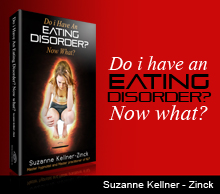 Could Food Addiction be Caused by PTSD? – Vol. 286, November 20, 2014
Could Food Addiction be Caused by PTSD? – Vol. 286, November 20, 2014
A new study published in the Journal, Jama Psychiatry, September 17, 2014, reports that 49,000 female nurses between the age of 25 and 42 were included in research on the link between food addiction and PTSD. Signs of food addiction were seen in 18% of the 10% who showed 6 to 7 of the symptoms of PTSD. To give you an idea of how large a number that is, that would be triple the number of women who did not have PTSD.
Food addiction is thought to exist when one frequently eats when they are not hungry, feeling sluggish or fatigued from overeating and experiencing physical withdrawal when cutting back on certain foods. Do note that not all health professionals agree that food addiction exist.
This study demonstrated that women who showed the most symptoms of PTSD were likely to turn to eating as a method of coping with that trauma. Unfortunately, eating is never a way to heal the inner pain from trauma. Because of this fact, the eating continues as the woman is trying to fill that “hole in her sole”.
I have had many clients who have had issues of overeating. In the majority of cases, my clients have realized that it wasn’t the fact that they were unable to keep to a diet that brought them in. It was the realization that their eating was coming from a place of self-soothing they developed as a direct result of some form of abuse they suffered, sometimes repeatedly.
From the hypnotic perspective the longer a person continues with the same programming, the more difficult it can become to alter it. With all the yo-you dieting that people do, it is now understood why that may be so. The client really needs to have a very strong desire to let go of the hurts experienced and then do the requisite work to lose the extra weight. That means eating healthier foods while increasing their activity level. Until one deals with the cause of the eating – be it self-soothing, or for protection to keep unwanted attention away, or some other reason, this person will be prone to overeating.
For those who have suffered traumatic events, the first thing that needs to be addressed is to take the emotional charge off those traumatic events and do the requisite healing. Once that is accomplished along with the life style changes, the weight will come off and stay off.

Do I have an Eating Disorder? Now What?
Do you suspect that either you or a loved one might be suffering from an Eating Disorder? Find out for sure as well as the best ways to treat Anorexia or Bulimia in "Do I have an Eating Disorder? Now What?", currently available from the Dawning Visions Hypnosis Store.
Do I have an Eating Disorder? Now What?

